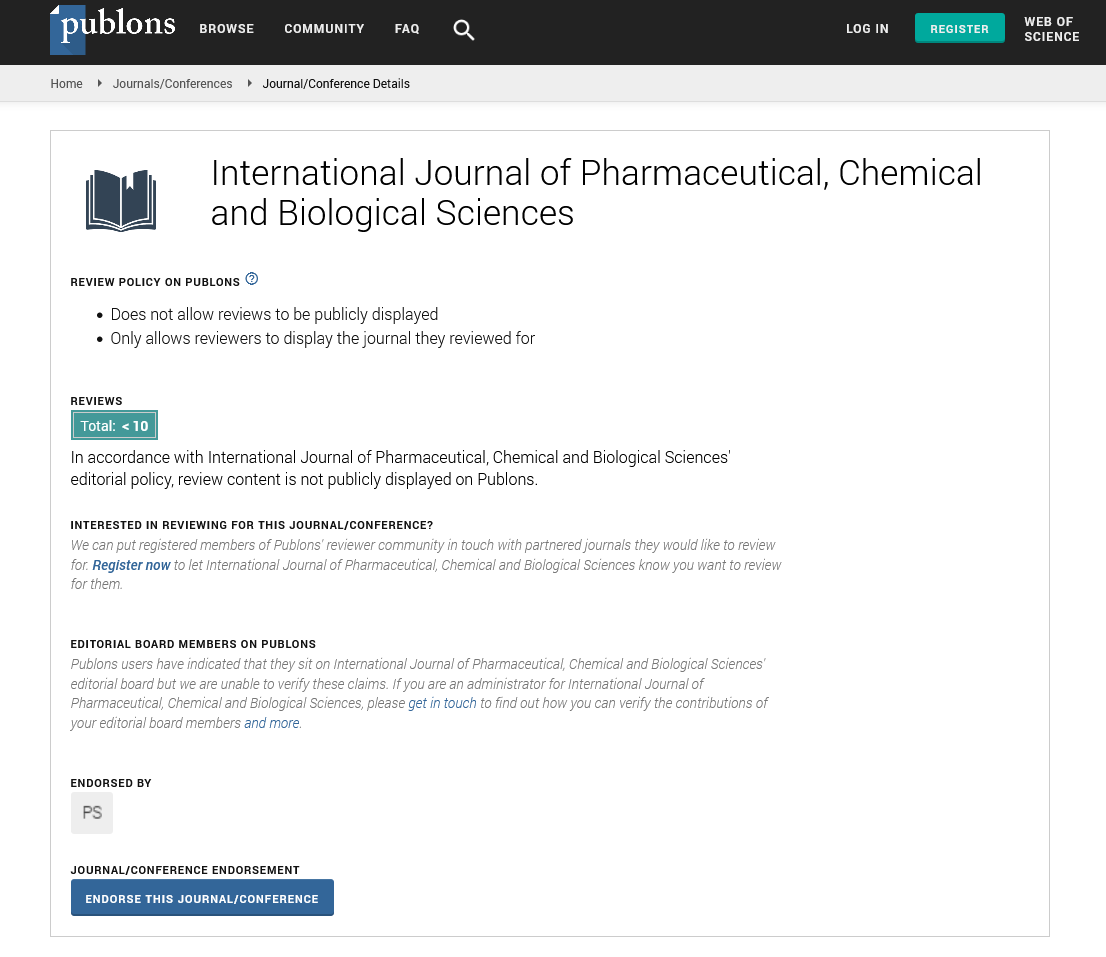Abstract
Author(s): Venkateswarlu Guddeti, D. Madhu Babu, B. Nagamani, M. Ratna Teja, M. Sai Sravani, CH. Spandana
Inflammation is a localized reaction that produces redness, warmth, swelling, and pain as a
result of infection, irritation, or injury. In traditional system of medicine Hibiscus Rosa Sinensis
Linn, Flowers powder exhibited anti-inflammatory activity, antitumor activity, anti implantation
activity, in diabetic patients; a flower bud reduces level of blood sugar.Hence, the present study
was aimed to explore the possible anti -inflammatory activity of leaves extract of Hibiscus Rosa
Sinensis Linn in experimental animal models. Materials and Methods: For assessing of anti -
inflammatory activity carrageenan induced paw edema model was used. Diclofenac was used as
a standard reference for this model. Shade dried leaves of Hibiscus Rosa Sinensis Linn were
powdered and subjected to Soxhlet extraction using alcohol and water. Hydroalcoholic extract
was administered to the animals as suspension using 2% gum acacia for experimental purpose.
Results: Preliminary photochemical investigation of the hydroalcoholic extract of Hibiscus Rosa
Sinensis Linnreveals the presence of carbohydrates, proteins, flavonoids, Alkaloids, phytosterols,
Phenolics, tannins and volatile oils. Hydroalcoholic extract of Hibiscus Rosa Sinensis
Linnflowerseither up to the dose level of 2000 mg/kg did not produce any sort of mortality. In the
treatment of carrageenan induced paw edema in rats, there was highly significant decreased
paw volume when treated with Diclofenac and high dose of Hibiscus Rosa Sinensis Linn leaves
extract. This activity may be due to presence of flavonoids, phytosterols and tannins in extract.

